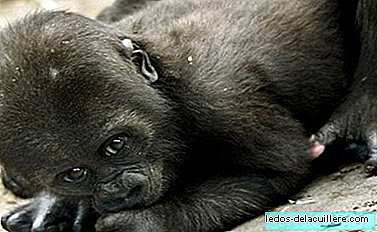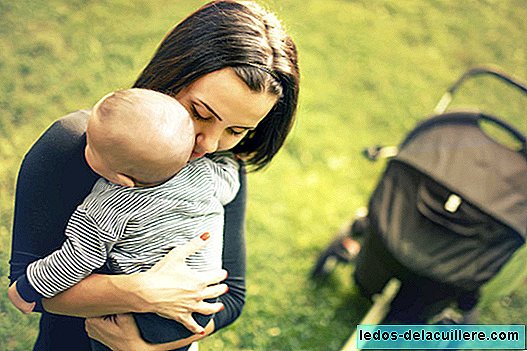
A few days ago I published a post about visits to the Madrid Zoo that allow us to better understand the facilities inside. This opened a very interesting debate in my circle of friends, generally very aware of respect for children, but also towards animals and the understanding of their rights.
It has made me reflect on this issue and the truth, I would like to share my doubts with you.
Do we have the right to use animals for fun?
We only love what we know. There is no doubt that animals deserve to be respected and not suffer for our whims and fun. I do not speak of feeding on them anymore, although the reality about industrial farms would leave you overwhelmed, because the question of being or not a carnivore is not the issue I propose to talk about, but about using beings that feel for our pleasure, without need. Do we have the right to use animals to have fun and teach children that this is correct?
The suffering of captivity
The fact that animals, in circuses, suffer a lot, I have very clear for a long time. In reserves or natural parks, where they can enjoy, not freedom, but if living conditions similar to normal, their condition is surely better. The puppies that we buy can come from hatcheries where the mothers are mistreated badly until they are killed from exhaustion, so if we want to live with an animal I will always advise you to go to a place with total guarantee or adopt an animal with which you do not know trade But what about the Zoo?
As good as the facilities are, in zoos the environments are very small and some animals live in distressing conditions. I do not think a tiger in a closed enclosure is happy, surely you have seen them going round and round about themselves, transmitting their miserable existence. Captivity produces suffering.
That they take care of them as well as possible, I do not doubt it and now I know that the intention is to avoid them suffering and that they live well, but it is not freedom, and the animals surely feel the cage.
Does anyone know the Casa de Fieras del Retiro in Madrid? It is already abandoned, but when you look into those caves and nightmare cages where bears, lions and tigers were crowded, your soul falls to your feet.
Of course, in modern zoos, such as in Faunia or the Cañada Real, the conditions of the animals are quite good and their habitats and food are taken care of, trying to allow them to at least move and take care of sick animals until they are recovered . Anyway, there are enclosures, for that in which the lunches of the Faunia are shown, which make them feel very sorry for them, even if they are alive and most of their dead congeners.
Other sites have better conditions yet. My son has visited Cabárceno Park several times and the truth is that, although these animals are not free, at least they live in spaces wide enough so that they can reproduce, in part, the living conditions they would have in Nature.
Perhaps the ones who grieve me most are the gorillas, looking at us through a glass with a melancholy that, knowing how we know now about their enormous intelligence, I am sure they are aware of much more than we think. I don't know if you will know the story of a mother who visited a zoo with her baby and when she started crying, the female gorilla approached the glass and pointed to the mother's own breast, as if telling her that she had to breastfeed the baby I cried When I heard this story, that of a sister speaking to another sister and recognizing the crying of a child, I could never see them as "simple beasts without feelings" anymore.
I was also struck by the story of Christian the Lion, a puppy raised by humans who meets them years later and recognizes them as his family, hugging them with a tenderness that leaves them excited.
It is a material question that animals are not made to suffer for our pleasure, but also, without a doubt, a very respectable philosophical position that defends that we cannot become masters of other living beings and have fun seeing them prisoner.
On the other hand, understanding that It’s horrible to use animals for fun, denying them the right to live naturally free, there were those who pointed out a reason to also consider: we cannot love what we do not know.
Know to love
The children of the city barely have contact with wildlife or with Nature. No matter how much they talk to them, parents and educators, about respect for other beings, or watch documentaries, the real existence of those animals, alive, throbbing, with their look and their impressive presence only feel when you really see them. Only when they know them can they love them.
To love them and wish for their preservation, these friends said, children need to know them and see them, can identify with them and feel empathy, so zoos would be a necessary evil that can serve to save many species from destruction thanks to children growing up loving them, even at the expense of the freedom of some members of the species that must live carefully, but captive.
Both positions seem respectable to me, because they are born from love for animals and the desire that children grow up with the awareness of the respect they deserve and the conservation of the Natural Environment, but surely our readers can give us new nuances. That's why I ask you: zoo, yes or no?
In Babies and more | Loving animals, Animals are not toys, For a planet without animal abuse: children do what they see












